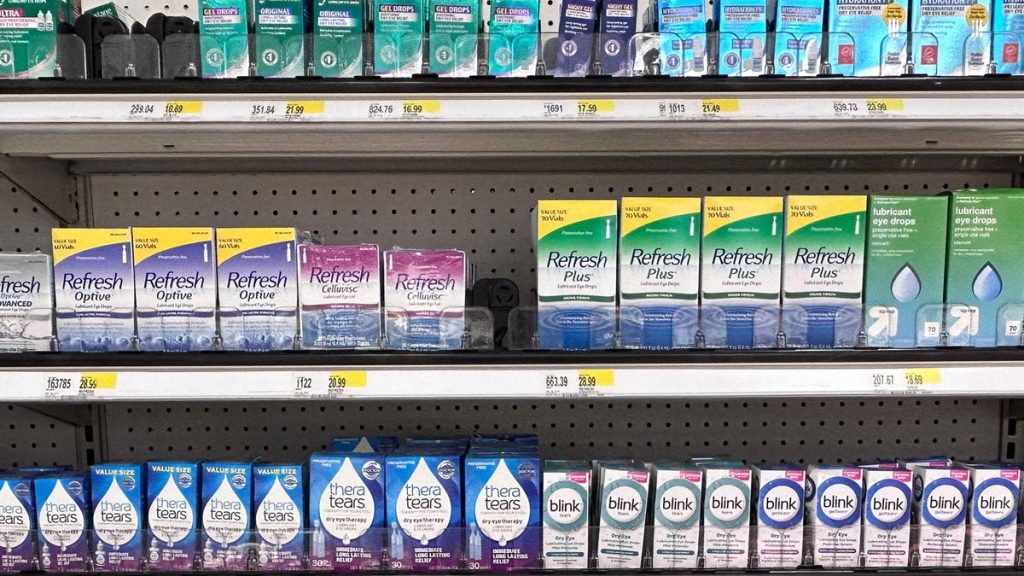When it comes to choosing the right eye drops, it is crucial to consult with a doctor beforehand to determine the underlying issue. While over-the-counter (OTC) eye drops may be sufficient for some conditions, others may require prescription medicated drops. It is important to understand the differences between drops with preservatives and those without. Preservative-free eye drops are generally safe for most people, including pregnant individuals, while drops with preservatives should be used cautiously as they can exacerbate certain conditions, such as dry eye disease. Dr. Koetting warns against using poor-quality artificial tears that claim to reduce redness, as they may contain chemicals that can lead to adverse effects such as dilation of the eyes, corneal toxicity, and blurred vision, among others. Dr. Farris explains that the preservatives in most drops can alter the corneal surface, causing loss of superficial corneal cells and potentially worsening symptoms if used too frequently.
It is important to be aware of the signs of a negative reaction to eye drops, which may include worsening redness, irritation, blurred vision, or a burning sensation. These symptoms are often associated with drops containing preservatives. Dr. Koetting emphasizes that if these symptoms persist, it could indicate an allergy or sensitivity to the drops, and immediate discontinuation is necessary. Additionally, if itching, swelling around the eye, or redness in the whites of the eyes occurs, it is essential to seek prompt medical attention from an eye care professional. Identifying and addressing negative reactions to eye drops is crucial in preventing further complications and ensuring proper eye health.
When selecting eye drops, it is essential to prioritize quality and safety. Opting for preservative-free options can reduce the risk of adverse effects and ensure greater comfort for most individuals. Dr. Koetting advises against using artificial tears that claim to reduce redness, as they often contain chemicals that can lead to rebound redness, corneal toxicity, and other complications. Understanding the potential risks associated with certain eye drops can help individuals make informed decisions about their eye care and avoid unnecessary discomfort or complications. Consulting with a doctor or eye care professional before using eye drops is crucial in determining the most appropriate treatment for specific eye conditions.
In cases where OTC eye drops are insufficient in addressing the issue, prescription medicated drops may be necessary. Differentiating between drops with preservatives and those without is essential in determining the most suitable option for individual needs. Preservative-free eye drops are generally considered safe for the majority of individuals, including pregnant individuals, while drops containing preservatives should be used with caution to prevent worsening of symptoms. Dr. Farris warns against the potential for preservatives in eye drops to alter the corneal surface and cause loss of superficial corneal cells, emphasizing the importance of using these drops judiciously. By understanding the implications of using certain eye drops, individuals can better protect their eye health and minimize the risk of complications.
In conclusion, the choice of eye drops should be made with careful consideration of individual needs and potential risks. Prioritizing preservative-free options can help reduce the likelihood of adverse reactions and promote overall eye health. It is important to be attentive to any signs of a negative reaction to eye drops, such as increased redness, irritation, or blurred vision, and to seek prompt medical attention if necessary. By consulting with a doctor or eye care professional, individuals can receive guidance on the most appropriate eye drops for their specific condition and avoid potential complications. Ensuring the safety and effectiveness of eye drops is essential in maintaining optimal eye health and comfort.











